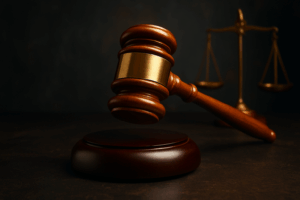A brutal attack on a peaceful gathering in Boulder, Colorado, has raised alarms over the safety of Jewish communities across the United States, amid escalating incidents of antisemitism and political violence related to the Israel-Palestine conflict.
Boulder Assault Highlights Growing Security Concerns Among Jewish Communities in the U.S.

Boulder Assault Highlights Growing Security Concerns Among Jewish Communities in the U.S.
Recent attacks on Jewish gatherings in the U.S. have intensified fears of rising antisemitism.
On Sunday, a peaceful demonstration in Boulder, Colorado, aimed at raising awareness for hostages held in Gaza was violently interrupted, leaving 12 individuals injured. The assailant, identified as Mohammed Sabry Soliman, allegedly threw incendiary devices at the participants while proclaiming intentions to "kill all Zionist people," according to court records. This incident is part of a troubling pattern of attacks against Jewish communities, causing heightened concerns regarding an increase in antisemitism throughout North America.
This Boulder incident follows a tragic event earlier this month when a shooter fatally injured a couple outside the Capitol Jewish Museum in Washington, D.C. The victims were later recognized as employees of the Israeli embassy attending a function at the museum. The unrest is further compounded by recent attacks, such as the arson at the residence of Pennsylvania Governor Josh Shapiro, conducted just after the commencement of Passover.
Adina Vogel Ayalon, from the pro-Israel group J Street, emphasized that fears have escalated for Jewish individuals, who now find themselves feeling more vulnerable than ever. "These incidents of hate crimes do not appear to differentiate between political stances regarding the Israel-Hamas war, which is unsettling," Ayalon stated.
The backdrop of these assaults is the ongoing conflict between Hamas and Israel, ignited by a Hamas attack on October 7 that resulted in extensive casualties and hostages. Reports indicate that since the war commenced, over 50,000 fatalities have occurred in Gaza, with many being civilians, but exact figures remain contentious as media access to Gaza has been restricted.
The war has instigated intense political debate in the U.S., segregating views across religious, generational, and political lines within the American Jewish community regarding support for Israel and Palestinian statehood. Ayalon insisted that the Boulder attack transcends political debates, striking a vital alarm over the boundary separating free speech from violence.
Commentary has also emerged from outside the Jewish community. The Muslim Public Affairs Council strongly condemned the Boulder assault, asserting that antisemitism has no place in society while advocating for the values of dignity and safety for every citizen.
The group targeted in Boulder, known as Run For Their Lives, conducts weekly meetings to advocate for the release of hostages taken to Gaza. Shira Weiss, the group's global coordinator, described their mission as peaceful and apolitical, attracting individuals from across the political spectrum. Despite that, safety concerns have now reached unprecedented levels, with Weiss emphasizing how such violence was never anticipated.
Jewish communities throughout the U.S. have historically prioritized security, especially following past atrocities such as the Pittsburgh synagogue shooting in 2018, which resulted in 11 fatalities. The current wave of attacks has reignited discussions on security within these communities. Haliey Soifer, CEO of the Jewish Democratic Council of America, noted that these recent harrowing events leave Jewish Americans questioning their safety, not just personally but also regarding the security of community institutions.
In response to these repeated threats, Jewish organizations in Colorado have initiated fundraisers to enhance security measures. Rabbi Dan Moskovitz, a frequent participant in Run For Their Lives events, expressed grave concerns that incidents like Boulder could lead to broader radicalization.
With antisemitic incidents reportedly reaching record highs in recent years, the intersection of these events underscores an urgent call for unity and increased awareness against rising hate, transcending religious and political divides.



















